Some Definitions of Science Fiction
Is This Science Fiction?
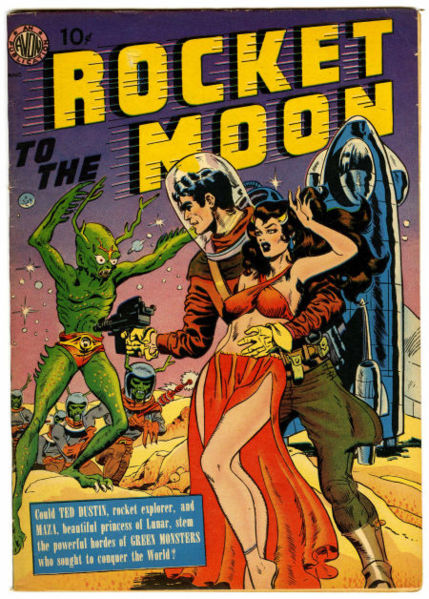
Or This?
Both?
I started teaching my Science Fiction class at Fullerton College last week, a course we offer every two years. It’s been nice having conversations with students about my favorite genre; some of the students bring a lot of background, and others are “sci fi curious” so it’s a good mix, as usual.
I always start the semester by asking why the students have opted for this class and how they would define science fiction. Over the years, I’ve gotten some pretty good answers, but a lot of the time the students’ eyes glaze over a little: they’ve never really been pressed to say just what science fiction is. I remember one rather confident young woman who asserted “Science fiction is whatever I say it is.” Good for her. Kind of like obscenity: you know it when you see it.
In a lot of cases, that’s true, but still–just what is science fiction? It’s not quite as easy to nail down as other genres: Western, Romance, Horror, Mystery, even Fantasy. You can have science fiction about the future, the past, or the present; with or without aliens; “hard” science fiction or social science fiction; with or without futuristic or cutting edge technology; with or without human beings; in this universe/reality or another, and all the manifestations have sub-genres within them, bringing different elements on board all the time.
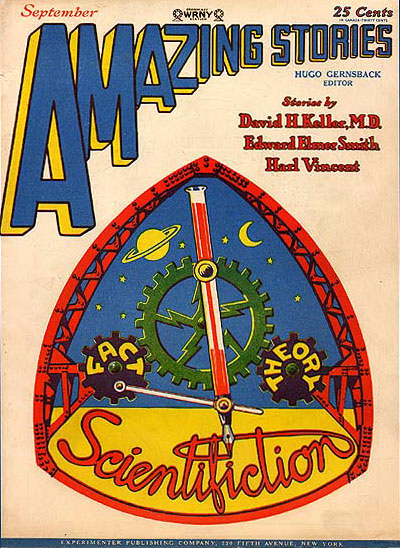 And let’s not forget that while the genre has been around for almost 200 years (depending on your definition, again–I tend to stick with Frankenstein as the genesis moment), it wasn’t called “science fiction” until the 1930s. Before that, it was “scientific romance” or “scientific fiction” or (best of all) “scientifiction” thanks to Hugo Gernsback. So this may further muddy things up–Science Fiction may still be just a “baby” genre, or maybe a toddler by now, still trying to figure out what it is. Or a teenager with an identity crisis.
And let’s not forget that while the genre has been around for almost 200 years (depending on your definition, again–I tend to stick with Frankenstein as the genesis moment), it wasn’t called “science fiction” until the 1930s. Before that, it was “scientific romance” or “scientific fiction” or (best of all) “scientifiction” thanks to Hugo Gernsback. So this may further muddy things up–Science Fiction may still be just a “baby” genre, or maybe a toddler by now, still trying to figure out what it is. Or a teenager with an identity crisis.
At any rate, scholars, writers, and others have been trying to nail science fiction down for a while now, and I’ve gathered some definitions together. See which ones you agree with the most:
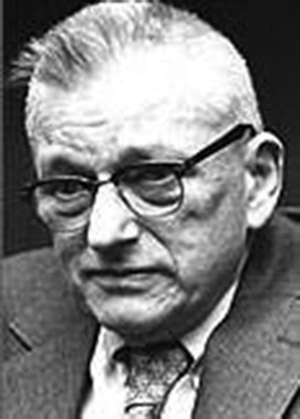
John W. Campbell
“Science fiction is based upon a belief that the world is changing, that the way we live is changing, and that humanity will adjust to it, or will adjust change to humanity, or will perish.” –James Gunn
“Fiction is simply dreams written out. Science fiction consists of the hopes and dreams and fears (for some dreams are nightmares) of a technically based society.” –John W. Campbell
“It may be suggested that science fiction is composed of ‘supernatural’ writing for materialists. You may read every science fiction story that is true science fiction, and never once have to compromise with your id. The stories all have rational explanations, provided you are willing to grant the word ‘rational’ a certain elasticity.” –Groff Conklin
“Social science fiction is that branch of literature which is concerned with the impact of scientific advance upon human beings.”–Isaac Asimov
“Science fiction is a branch of fantasy identifiable by the fact that it eases the ‘willing suspension of disbelief’ on the part of its readers by utilizing an atmosphere of scientific credibility for its imaginative speculations in physical science, space, time, social science, and philosophy.”–Sam Moskowitz
“Science fiction is that class of prose narrative treating a situation that could not arise in the world we know, but which is hypothesized on the basis of some innovation in science or technology, or pseudo-science or pseudo-technology. It is distinguished from pure fantasy by its need to achieve verisimilitude and win the ‘willing suspension of disbelief’ through scientific plausibility.”–Kingsley Amis
“A science fiction story is a story built around human beings, with a human problem and a human solution, which would not have happened at all without its scientific content.” –Theodore Sturgeon
“In science fiction a fantastic event or development is considered rationally.”–James Gunn
“Science fiction is the major non-realistic mode of imaginative creation of our epoch. It is the principal cultural way we locate ourselves imaginatively in time and space.”–H. Bruce Franklin
“[T]he one indispensable ingredient of science fiction [is] a belief in a world being changed by man’s intellect, a conviction that what was being written could really happen.”–James Gunn
Which definition do you agree with most? What other definitions have you come across? I’d love to hear. Thanks for reading.
definition Frankenstein Groff Conklin. Isaac Asimov H. Bruce Franklin Hugo Gernsback James Gunn John W. Campbell Kingsley Amis Sam Moskowitz Science Fiction science fiction definitions theodore sturgeon

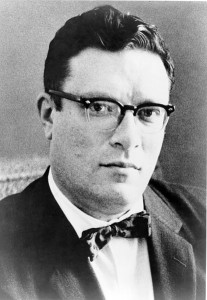




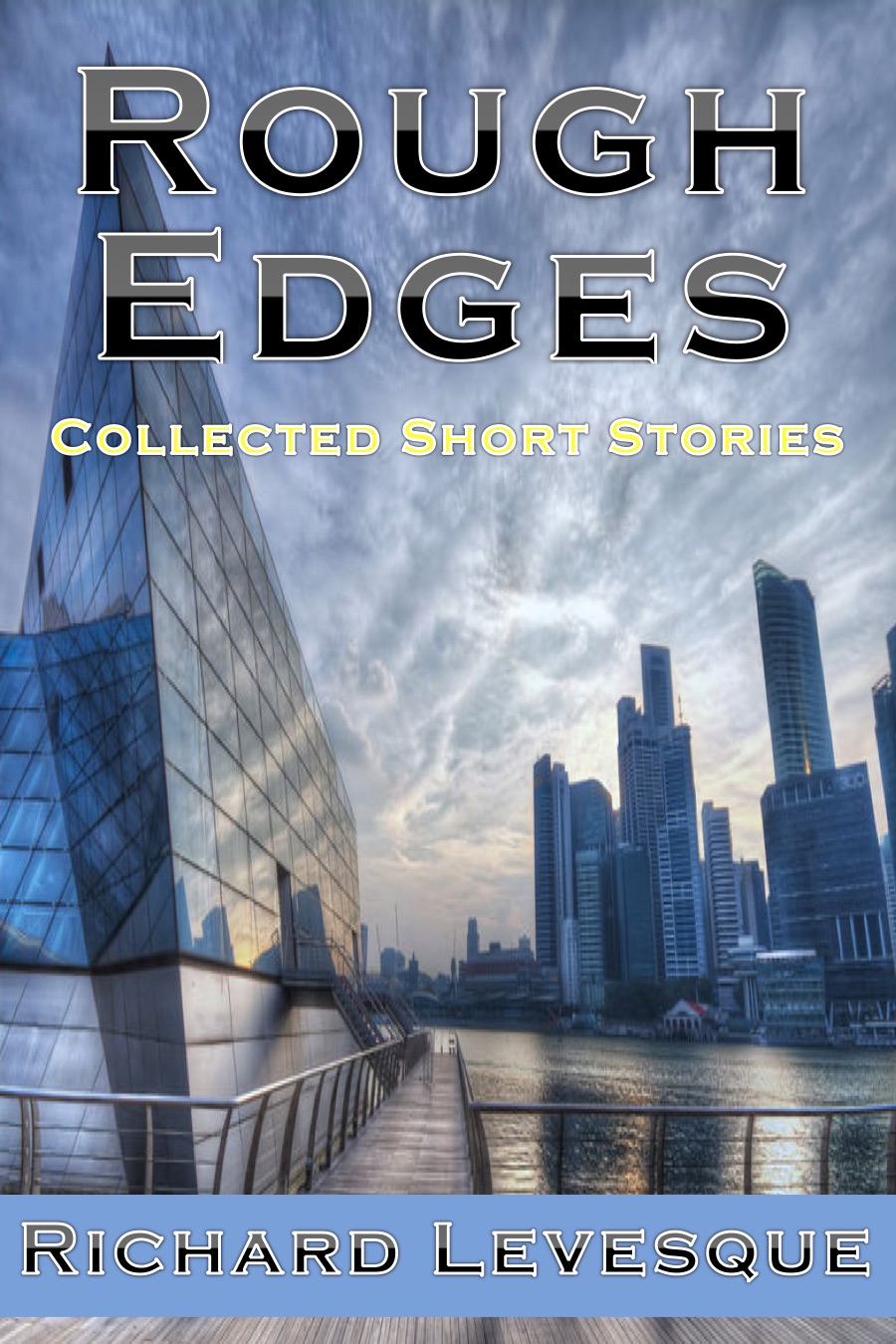


One Response
Sam Moskowitz and Kingsley Amis seem to define it the most completely for me.
Comments are closed.